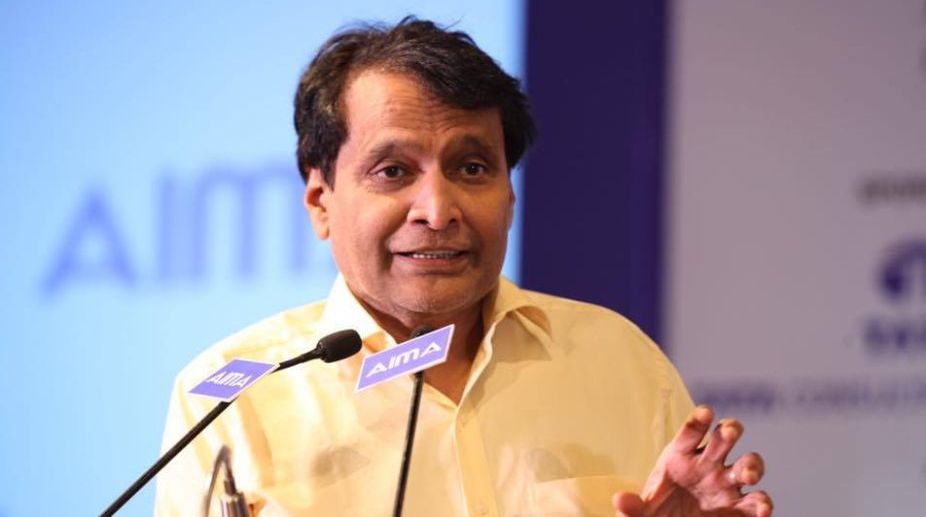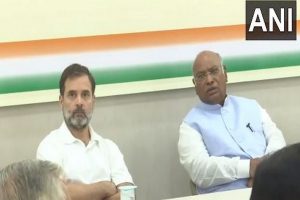A government cannot run industry and regulation on businesses should be kept to a minimum to attract more foreign direct investment (FDI) and spur domestic financing, according to a minister.
Commerce and Industry Minister Suresh Prabhu said that a committee had been set up under the chairmanship of the Secretary, Department of Industrial Policy and Promotion, to look at regulatory issues.
“The ultimate idea is that regulation should not stifle the possibilities of investment. I get a sense now that people have again started looking at investments,” Prabhu told this correspondent in a freewheeling interview here ahead of his visit to Davos for the World Economic Forum’s (WEF) annual conference.
Prabhu also maintained that the government cannot run industry and a new industrial policy was in the works aimed at reducing regulations and promoting modernisation of existing industry. It will also seek to encourage new and emerging industries, even those which are not seen today.
The minister is slated to hold a series of bilateral meetings with his counterparts from many countries, including Australia and the UK, participating at the WEF in Davos, besides holding meetings with leading business leaders from around the globe in an attempt to attract more FDI into the country.
Taking note of India’s jump in the global “ease of doing business” rankings from 130th place to 100th, Prabhu said the government was in the process of initiating a number of measures, which might not have been captured in this particular ranking study. “In the next few years’ time, we will see it (the ranking) improving again and again,” he said.
Prabhu said the change in rankings was largely because of the introduction of the goods and services tax (GST) regime which was the single-largest and most significant reform post-Independence. It was also “a great positive” step in the direction of bringing transparency and greater reliability.
On the core focus areas for India to boost exports, he said the government was in the process of drawing up strategies across five main components — promotion of services, value-addition in goods, focus on agriculture, improving standards, and logistics.
“We have identified champion sectors with untapped potential for value-addition, employment generation and technology upgradation to promote services. Focus will be on improving the ease of doing business across these sectors,” he said.
India, he said, was poised to become the third-largest economy in the world and the onward journey of becoming a $5 trillion economy was “inevitable and unstoppable”.
“Today, global output is higher than the global trade. We need to re-strategise our global trade. India’s journey towards achieving $5 trillion economy sooner is not possible without expansion of our basket of global trade,” Prabhu said.
Envisaging a new high in India’s economic scenario, he said: “If we grow by more than eight per cent we will reach there in the next 6-7 years; if we grow by today’s pace of around 7 per cent we will reach there in 1-2 years more.”
Asked about the steps being taken to reduce India’s logistics costs, Prabhu said earlier there was no dedicated team dealing with logistics, but Prime Minister Narendra Modi had taken the decision to create a separate logistics division within the Ministry of Commerce and Industry.
He said steps were being undertaken to create a digital logistics platform for the industry to increase the speed of movement of goods and reduce costs.
“If a consignment is to be transported from, say, Mumbai to Kolkata, why not part-use rail and part-use road? But the right decision can be made only when we know the exact cost and time taken. A digital platform can make that happen,” he said.
Dwelling on the strategy to boost the “Make In India” initiative, he said it will be successful only if it happens at the state and district levels.
As Railway Minister Prabhu had undertaken a programme of developing a joint tourism circuit on the western coast of India, including the Konkan and Goa regions.
Now as the Minister for Commerce and Industry, he wants to take the Make-in-India concept to the Konkan.












